Off the Plan vs Re-sale Homes

So you’ve decided to buy into the real estate market – congratulations! – now the real work begins. Next step is to figure out what kind of investment you’re going to make.
What sounds more appealing – something old or something new?
A pre-loved property with years of memories or an off the plan design yet to be developed?
Both styles of investment have their pros and cons which may influence what kind of purchase you’re looking to make.
OFF THE PLAN: PROS
When purchasing off the plan, you get can get into the market without having to outlay your cash up front. Typically, a small deposit is required until property is constructed or settled – normally within 18 to 24 months. This also means that when it comes time to settle, the value of the land may have gone up – so you’ve profited before you’ve even completed the transaction.
Because an off the plan property is built by a developer, you can claim greater depreciation costs as years go by. So when tax time rolls around, you will have more scope to claim larger depreciation costs annually.
Purchasing an off the plan property renders you eligible for the First Home Owners Grant, a $15,000 leg up from the government. This only applies to investors who are buying new or off-the-plan.
OFF THE PLAN: CONS
Because off the plan properties are brand new, they are generally more expensive than re-sale homes. So getting into the market for an absolute steal is less of an option – even with the first home owners grant.
Another stumbling block when buying new is that you don’t know exactly what you’re getting. While the developer will show you mock ups of the property, until it’s built there is an element of the unknown. The fact you don’t have a tangible property to deal with can trouble some potential investors.
Finally, an off the plan purchase requires the buyers to put a lot of faith in the developer. You have to trust that they will do right by their investors, use funds appropriately and build the property that was promised.
RESALE HOMES: PROS
A greater variety of homes on offer equates to a larger price point spectrum. While you could conceivably pick up a resale home for less than $450,000, the chances of buying something off the plan at that price are slim.
Opting for resale also gives you the benefit of choosing what style of property you want – a terrace, apartment, beach-side bungalow with a bit of character.
What you see is what you get when it comes to a resale home, so you won’t be stung by any hidden extras. The property you inspect will be the property you buy – so you know exactly what you’re getting yourself into. Conversely, off the plan purchases can come with a host of hidden costs that are uncovered during the redevelopment – window glazing, carpeting and painting.
RESALE HOMES: CONS
Age can be a real issue in real estate. The older a property is, the more problems it may potentially have. Once you buy into a resale, any pre-existing problems become yours. If the house needs renovations or repairs, this will be an additional cost you’ll have to consider.
If the plan is to make your purchase a rental investment, then your potential for rental earnings will be lowered with a resale property. Again, age is the issue, with renters more likely to shell out big bucks for a brand new place.
Whether you decide to buy new or old, it’s pays to be prepared. Do your homework:
- If you’re looking into buying in an area you’re not familiar with, visit the area during the day and night
- If you’ll be commuting to work, do a test run to see how long your commute would take
- Get to know your surroundings. Living in close proximity to schools and train stations will definitely be attractive to potential buyers in the future
If you’re thinking of purchasing a new or existing property, speak to the team at Park Trent.
